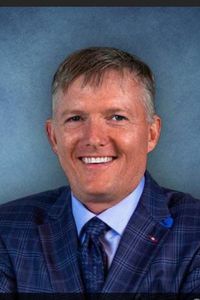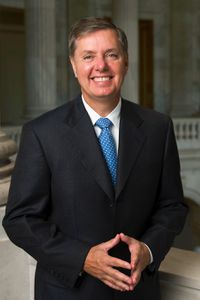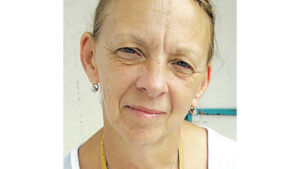Matt Innis
Matt Innis is an American electrical contractor and politician who unsuccessfully ran for U.S. Senate in Nebraska in 2018 and 2020. Though falling short in both bids, Innis gained notoriety for mounting spirited Republican primary challenges against well-known incumbents. His campaigns focused on reducing government spending, securing America’s borders, and reforming the healthcare system.
Background and Early Life
Matthew John Innis was born on September 15, 1970 in Urbana, Illinois. His family later relocated to Lincoln, Nebraska where Innis attended Lincoln Southeast High School.
Education
After graduating high school in 1988, Innis briefly studied at the University of Nebraska-Lincoln before deciding to leave college and enter the workforce. He felt that the construction and electrical trades provided better opportunities at the time than a university degree.
Early Career
Innis started his career doing manual labor for various construction companies in Lincoln. In the early 1990s, he completed an electrical apprenticeship program and obtained his journeyman electrician license. For the next decade, Innis worked as an electrician on many commercial and residential projects around Lincoln.
Entering Politics
Though focused on growing his electrical contracting business, Innis became active in local Republican politics starting in the late 1990s. He volunteered on several campaigns and gradually took on leadership roles in the party organization.
Local Republican Party
Innis served as a precinct captain for the Lancaster County Republican Party before being elected vice chairman in 2007. He was then twice elected as party chairman, serving from 2011-2015. In that capacity, Innis rebuilt the party’s infrastructure, established new fundraising operations, and developed get-out-the-vote field programs.
2014 Campaign for Congress
Buoyed by his success revitalizing the county GOP, Innis launched a campaign in 2013 for Nebraska’s 2nd Congressional District seat held by Republican Lee Terry. Running to Terry’s right, Innis criticized the incumbent as too moderate and unwilling to fight the Obama administration’s policies. However, Terry prevailed in the primary 53% to 47% by leveraging his seniority and deeper connections across the district.
2018 U.S. Senate Campaign
In May 2017, Innis announced he would challenge incumbent Senator Deb Fischer in the 2018 Republican senatorial primary. Fischer was considered vulnerable among grassroots conservatives for not fully backing President Trump’s agenda.
Announcing Candidacy
In his campaign kickoff video, Innis highlighted his blue-collar background and small business credentials as proof he would bring a fresh perspective to Washington. He pledged to fight the D.C. establishment and directionless incumbent senators like Fischer.
Political Positions
Innis ran to Fischer’s right, criticizing her as an unprincipled politician who refused to stand up to GOP leadership. His platform included building a border wall, repealing Obamacare, enacting term limits, and reducing federal regulations. He framed Fischer as beholden to special interests and unwilling to disrupt the status quo.
Fundraising
While Fischer had over $4 million cash on hand, Innis struggled to raise funds and spent only $300,000 during the entire campaign. His lack of financial resources made mounting a robust advertising effort very difficult.
Endorsements
Innis won a few endorsements from national conservative groups, including the Tea Party Express and American Conservative Union. However, Fischer secured backing from the Nebraska Republican Party, U.S. Chamber of Commerce, National Rifle Association, and Right to Life.
Primary Election Loss
In the May 2018 primary, Fischer easily dispatched the underfunded Innis by a margin of 76.2% to 23.8%. Innis won just over 70,000 votes statewide and failed to carry a single county against the deeply entrenched incumbent.
2020 U.S. Senate Campaign
In September 2019, Innis launched a second Senate bid, this time attempting to unseat Republican incumbent Ben Sasse.
Entering the Race
Innis castigated Sasse as an elitist turncoat who refused to loyally support President Trump’s agenda. He hoped to channel conservative anger at the maverick Sasse into an upset primary victory.
Campaign Platform
As in 2018, Innis campaigned as a grassroots populist conservative. He advocated completing the border wall, repealing Obamacare, protecting gun rights, ending birthright citizenship, and cracking down on illegal immigration.
Primary Election Defeat
However, Sasse easily turned back Innis’ primary challenge, winning 75% to 25% in May 2020. Innis slightly improved on his 2018 performance but still finished nearly 150,000 votes behind the far better financed and organized incumbent.
Political Views
Throughout his Senate campaigns, Innis consistently took hardline conservative positions on most major issues.
Economic Issues
Innis pledged to reduce government spending, lower taxes, eliminate unnecessary regulations, and audit the Federal Reserve. He supported a Balanced Budget Amendment and line-item veto power to control deficits.
Healthcare
Innis advocated repealing Obamacare entirely while promoting private sector solutions to reduce costs. He opposed single-payer healthcare plans and decried socialized medicine as antithetical to freedom.
Immigration
Innis’ immigration platform centered on completing border security infrastructure, mandating E-Verify, eliminating sanctuary cities, ending birthright citizenship, and limiting legal immigration levels. He framed unchecked illegal immigration as an existential threat eroding America’s sovereignty.
Foreign Policy
Innis supported an “America First” foreign policy prioritizing the national interest over foreign entanglements. He favored increased military spending but cautioned against open-ended interventions abroad. Innis criticized free trade deals as detrimental to American workers.
Personal Life
Outside his political career, Innis has lived in Lincoln for over 30 years and owned an electrical contracting business during that entire time.
Family and Religion
Innis and his wife Stephanie have four children together. The family belongs to a local evangelical Christian church, and Innis has emphasized his faith’s role in shaping his conservative worldview.
Hobbies and Interests
In his spare time, Innis enjoys fishing, hunting, golfing, and restoring vintage cars and motorcycles. He has participated in several charity golf tournaments over the years, supporting causes like Special Olympics.
Conclusion
While falling short in his Senate bids against Deb Fischer and Ben Sasse, Matt Innis nonetheless made a name for himself in Nebraska Republican politics. His spirited primary campaigns garnered substantial grassroots conservative support and highlighted his reputation as a pro-Trump populist. Though Innis seems unlikely to make another statewide run, he will likely remain active in the Nebraska GOP for years to come. His focus on controlling government spending and limiting illegal immigration reflect core issues that continue to animate the party’s base.
FAQs
Why did Matt Innis lose his Senate primary campaigns?
Innis lost decisively in both 2018 and 2020 due to being substantially outraised and outorganized by the Republican incumbents Deb Fischer and Ben Sasse. Both enjoyed major institutional advantages as sitting senators.
What were some of Innis’ main policy positions?
Innis campaigned as a fiscal and social conservative, supporting gun rights, anti-abortion measures, reduced government spending, immigration restrictions, healthcare privatization, and an “America First” foreign policy.
What is Innis’ background before politics?
Innis grew up in Lincoln, Nebraska and worked in the construction and electrical trades for over a decade. He later started his own electrical contracting company which he still owns today.
How did Innis first get involved in Republican politics?
Innis volunteered on local GOP campaigns in Lincoln and steadily took on more responsibility in the Lancaster County Republican Party organization. He later served as county chairman from 2011-2015.
Where does Innis stand ideologically compared to other Nebraska Republicans?
Innis aligned with the strongly conservative wing of the Nebraska GOP. He ran to the right of incumbents like Deb Fischer and Ben Sasse, portraying them as part of the establishment unwilling to back strict conservative policies.








